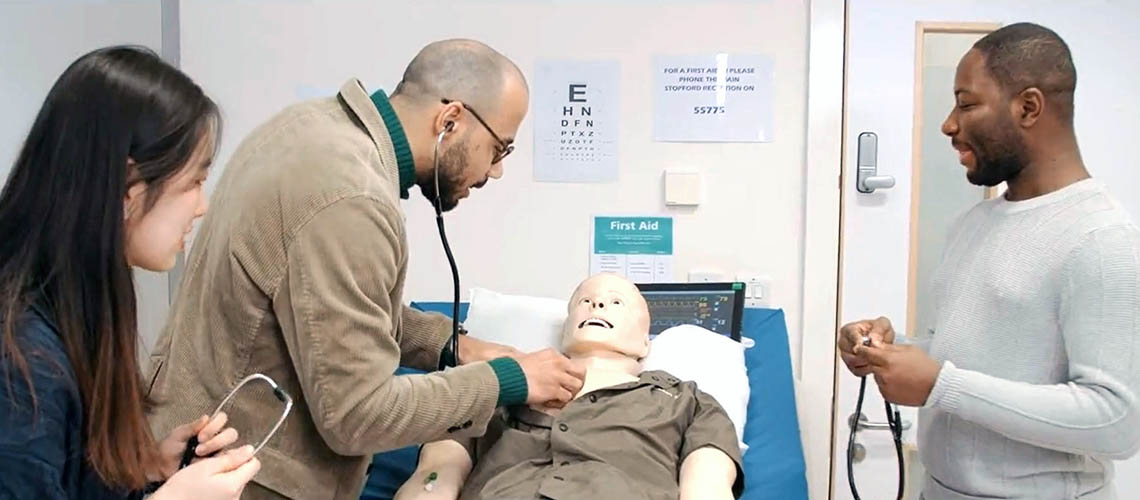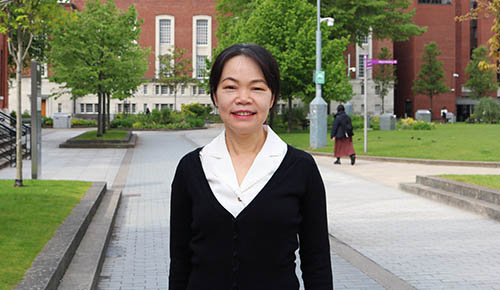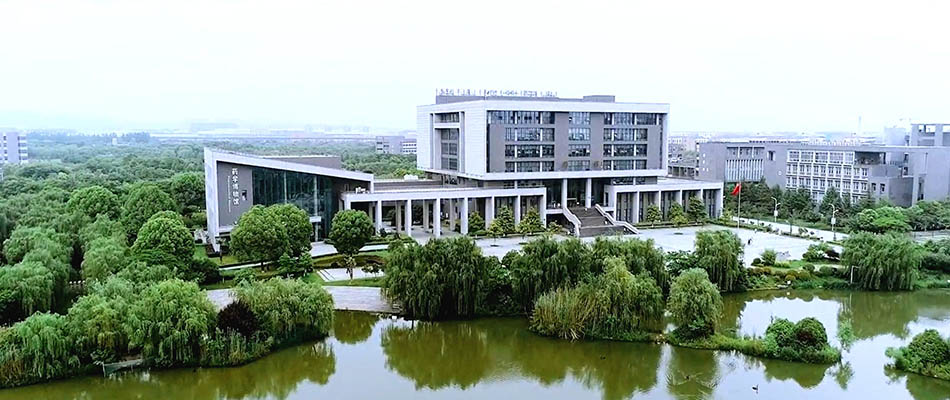Developing crucial clinical pharmacy skills in China
Clinical pharmacy is a growing field within the Chinese healthcare sector. A teaching collaboration between The University of Manchester and China Pharmaceutical University (CPU) is enabling Chinese students to develop the skills they need to work in clinical pharmacy.

In the UK, clinical pharmacists are already a recognised part of multidisciplinary healthcare teams, working alongside nurses, specialists and GPs. Clinical pharmacy is still a relatively new field in China, but due to the impact of COVID-19, pharmacy professionals there are beginning to take on more responsibility in healthcare settings.

Professor Li-Chia Chen
Li-Chia is a Professor of Drug Utilisation Research with expertise in pharmacy practice research and methodologies in evidence-based medicine, drug utilisation research, pharmacoepidemiology, and health economics. Her current work focuses on the quality of patient-centred healthcare and explores medicine use and outcomes for patients, payers and healthcare providers.
A collaboration between The University of Manchester and China Pharmaceutical University (CPU) in Nanjing is helping Chinese students to develop the knowledge, skills and experience required for a career as a clinical pharmacist.
The partnership draws on Manchester's reputation in pharmacy to enhance teaching and learning, and grow the clinical pharmacy field in China. CPU, established in 1936, is one of the top-ranked universities in China for pharmacy teaching and research, making the collaboration even more valuable to students and the clinical pharmacy sector.
"Clinical pharmacy is one of the important, prioritised subjects in Chinese higher education," says Dr Li-Chia Chen, a senior lecturer at Manchester who helped launch the partnership in 2020 and works alongside Professors Jayne Lawrence and Jason Hall to oversee a clinical pharmacy programme for Chinese students as part of the collaboration.
"The development of the pharmaceutical industry, especially during COVID-19, is so important, so the timing of this programme is right. We can help build pharmacy capacity in China and influence public health."
A collaborative approach to teaching
Launched in 2021, the BSc Clinical Pharmacy course is a dual award programme for Chinese students and runs over five years. Learners are taught at CPU in Years 1, 2 and 5 and attend classes in Manchester during Years 3 and 4. Staff at both institutions work together to design the curriculum and deliver the content, with CPU teaching the foundations of pharmacy and Manchester offering advanced clinical pharmacy topics.
Crucially, clinical placements offer practical hands-on experience, and the final year sees students apply the skills they have learned on the course so far in Chinese healthcare settings.

While the COVID-19 pandemic restricts opportunities for students and staff to travel between Nanjing and Manchester, teaching staff are still able to do much online.
“Clinical pharmacy is one of the important, prioritised subjects in Chinese higher education.”
Dr Li-Chia Chen
Dr Chen applied for an internal fellowship to run a scheme on the BSc where she and a pharmacy student at Manchester talk to ten small groups of Chinese students online each month, covering a range of topics within clinical pharmacy and study skills. She also helps find mentors for the BSc students so that they can learn from their peers throughout the course.
"I recently got our Chinese students to work in small groups, and each interviewed a clinical pharmacist in the UK online. They performed brilliantly. I'm very proud of them," Dr Chen says.
"In the first year of the course, we had 58 students registered on the BSc, which I think is very successful in student recruitment," she adds.
Upon graduation, students can work in hospitals and other national and regional pharmacy departments in China, and at global pharmaceutical companies.
The future
Although the BSc Clinical Pharmacy course is still relatively new, Dr Chen says that it may be possible to one day replicate the dual award teaching model to other subjects – and even to postgraduate study and research, perhaps with researchers and students visiting partner institutions.
"Manchester is in an excellent position in the pharmacy field, because we have the Centre for Pharmacy Postgraduate Education next door, and our MSc in Clinical Pharmacy is very well-received by global pharmacies too," she explains.
The University is well-versed in international collaborations and currently has teaching partnerships relating to healthcare, medicine, dentistry and other areas with institutions such as Alexandria University, Beijing Normal University, Mansoura University and Nanjing Medical University.
"Manchester's impact, influence and wider reputation as a university could help us to extend our collaboration network further," Dr Chen says.
Learn more about Manchester's global health collaborations.
